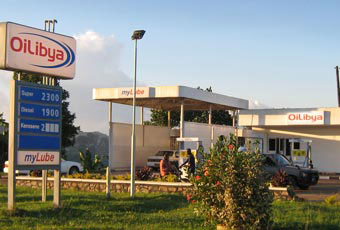
By Independent Team
Kenya mulls pulling out
The Kenya government is weighing the fate of its plan, jointly with Uganda, to extend the oil pipeline from Eldoret to Kampala. It cites the escalating cost and the uncertainty around the project since Uganda discovered oil and started plans for an inland refinery.
Tamoil East Africa in 2008 won the contract to construct the 354-kilometre oil pipeline because it offered the lowest bid, US$ 71 million against US$ 100 million from the nearest challenger, a Chinese firm. It promised to complete the work in 2009.
Later Tamoil revised its bill to US$ 78 million but a report in the Kenya’s Business Daily now says by close of 2009 the project cost had increased four times to about US$300 million (Approx. Shs 600 billion).
The Kenya government has already reduced its stake in the venture to 13%, down from 24.5%, while Uganda’s share is at about 12.3%. Tamoil holds 76% of the Joint Coordinating Commission (JCC).
The Business Daily article quotes Kenya’s Energy permanent secretary Patrick Nyoike saying that his government had reduced its stake because of the high cost. He said the government ceded control because it did not have enough money to meet its contribution for the original stake.
The Kenya Pipeline Company (KPC), which operates the pipeline, says it is awaiting a final decision.
“A final investment decision on the project is still awaited,” Selest Kilinda, the managing director told Business Daily.
The costs went up when the pipeline’s diameter was increased from eight to 14 inches to meet the growing need in the region.
However, questions have arisen on whether Uganda is still keen on the project after discovering oil.
“The new Ugandan oil scenario will need to be taken into account in any future investments on the petroleum infrastructure,” said an analyst in the Business Daily report.
Tamoil East Africa Ltd’s credential were queried during the bidding process for the pipeline, according to the leading sector information portal Alexander’s Gas & Oil Connections, it told the Kenya-Uganda Joint Coordination Committee that it was 70% owned by Tamoil Holding and 30% owned by Habib Investments of Habib Kagimu.
Kagimu in turn is said to have connections and influence in the Libya and Uganda governments.
Unconvinced, the project consultant, Alain Rosier of Nexant, raised further queries about its ability to design, construct, finance, own, operate, and transfer the pipeline to the two governments after a 20 year period. Rosier was removed.
Several organisations trading under the Tamoil name have sprung up causing confusion. Among them are Tamoil East Africa Ltd, Tamoil Holding, Habib Investments, and Oilibya.
Energy minister D’Ujanga told The Independent that “all the Tamoil’s are subsidiaries of the Libyan Tamoil Group.”
Officially, Tamoil is the trading name of the Oilinvest B.V. Group, an oil company based in the Netherlands and set up by the Libyan state-owned National Oil Corporation in 1988.
Tamoil in 2008 also formed a holding company, Oilinvest, which is controlled by the Libya Investment Authority. Oilinvest supplies, trades, and refines crude oil. It also sales refined oil products and operates over 3,000 fuel stations in Europe, especially Italy, and over 150 in Africa.
At the time Tamoil East Africa won the tender to construct the Eldoret-Kampala Oil Pipeline, it was also awarded ” without a tendering process ” the deal to repair and restock the national fuel reserves in Jinja, and another to build the new national strategic Kampala Oil Products Terminal.
At the time, acting Permanent Secretary in the Ministry of Energy, Paul Mubiru claimed Tamoil was favoured because its build, own, operate, and transfer (BOOT) operations were not costing the government a single penny.
A planned Kampala Storage Terminal with capacity for 180 million litres is also under Tamoil.
But leading players in Uganda’s oil sector, including Shell Country Manager Ivan Kyayonka told The Independent that there is concern that Tamoil could have unfair advantage if it builds and owns the pipeline, repairs, restocks, and operates the national oil storage facilities, and enters the retail trading.
They said this would lead to “lower stream complications”.
“Tamoil bought most of the stations that we (Shell) sold when we took over the Agip operation but could not use,” Kyayonka told The Independent.
In an interview with The Independent, Energy state minister Simon D’Ujanga defended Tamoil. He said, in May last year, Tamoil had started rehabilitation of the Jinja storage tanks. He also said Parliament on a law to regulate the oil sector. Nothing has been done almost a year later.
 The Independent Uganda: You get the Truth we Pay the Price
The Independent Uganda: You get the Truth we Pay the Price


